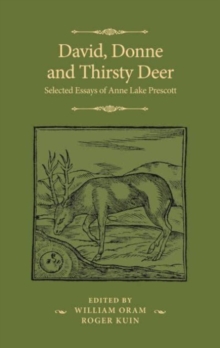
Spenserian satire : A tradition of indirection PDF
by Rachel Hile
Part of the The Manchester Spenser series
Description
This electronic version has been made available under a Creative Commons (BY-NC-ND) open access license.
Scholars of Edmund Spenser have focused much more on his accomplishments in epic and pastoral than his work in satire.
Scholars of early modern English satire almost never discuss Spenser.
However, these critical gaps stem from later developments in the canon rather than any insignificance in Spenser's accomplishments and influence on satiric poetry.
This book argues that the indirect form of satire developed by Spenser served during and after Spenser's lifetime as an important model for other poets who wished to convey satirical messages with some degree of safety.
The book connects key Spenserian texts in The Shepheardes Calender and the Complaints volume with poems by a range of authors in the late sixteenth and early seventeenth centuries, including Joseph Hall, Thomas Nashe, Tailboys Dymoke, Thomas Middleton and George Wither, to advance the thesis that Spenser was seen by his contemporaries as highly relevant to satire in Elizabethan England. -- .
Information
-
Download - Immediately Available
- Format:PDF
- Pages:208 pages
- Publisher:Manchester University Press
- Publication Date:31/05/2017
- Category:
- ISBN:9781526125132
Other Formats
- Paperback / softback from £19.45
- Hardback from £79.39
Information
-
Download - Immediately Available
- Format:PDF
- Pages:208 pages
- Publisher:Manchester University Press
- Publication Date:31/05/2017
- Category:
- ISBN:9781526125132










